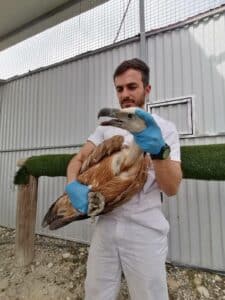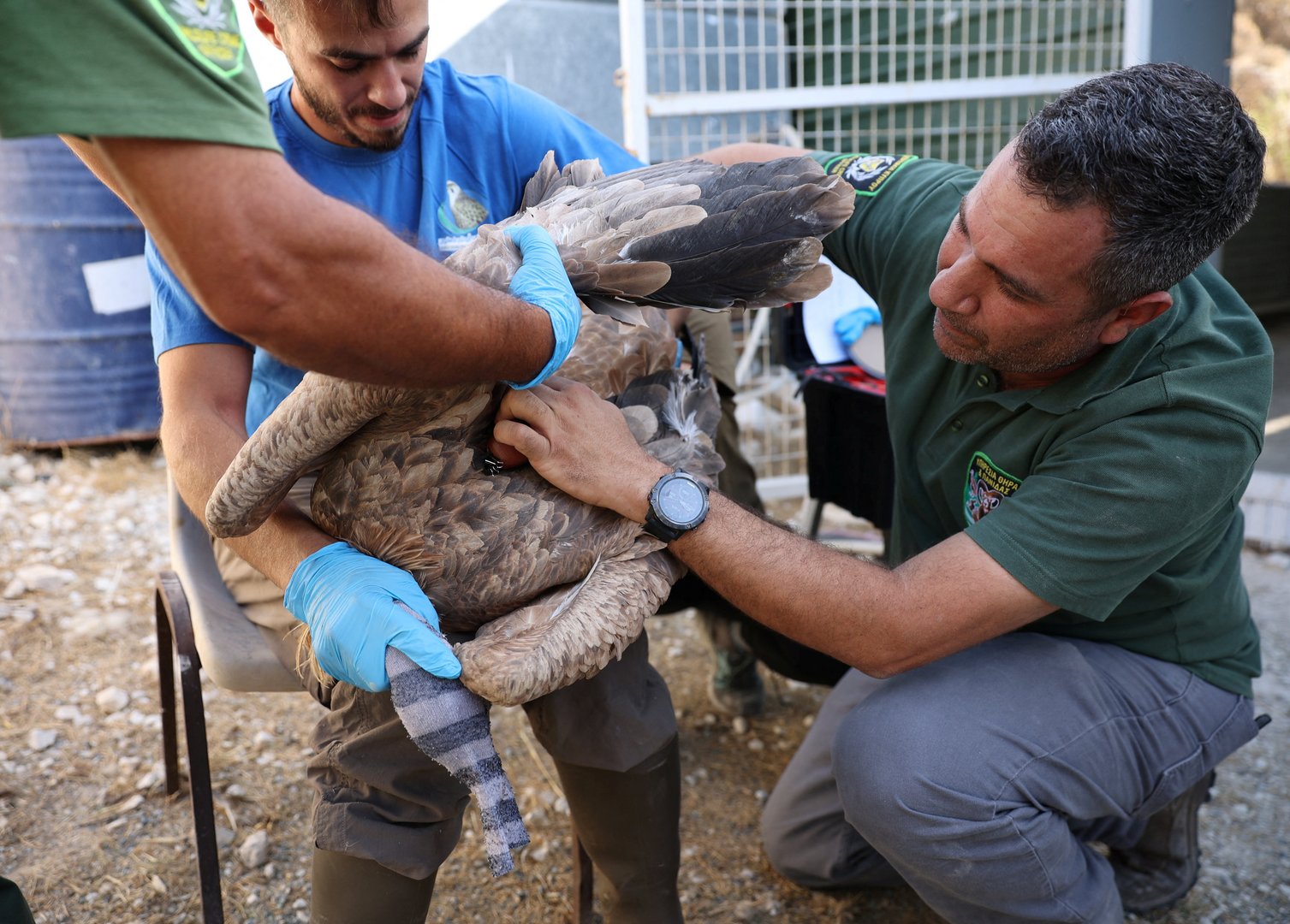Conservationists in Cyprus released griffon vultures into the wild on Friday, in the latest attempt to boost a critically endangered population of the scavenger birds.
Once thriving, the number of vultures on the east Mediterranean island is the smallest in Europe as accidental poisoning or changing farming techniques have left them short of food.

Project coordinators BirdLife, the island’s Game Service, the Vulture Conservation Foundation and Terra Cypria released 15 griffons into the wild last year. Of those, 11 have survived.
Conservationists have in the past made several attempts to boost the vulture population, including importing birds from Crete. Surveys have shown that without timely intervention to address the causes of vulture deaths the birds could become extinct on the island within 15 years, the organisations said.
“Losing a vulture is frequent, and that is something that is particularly worrying,” conservationists said in a statement.
Considered a natural garbage disposal unit, vultures feed off dead animal carcasses, which is an effective way to prevent the spread of disease.
But they can die if they feed off a carcass which had itself been poisoned – the fox, considered a threat by some farmers to livestock, is frequently targeted. The use of poisonous baits in Cyprus is illegal but is known to occur.
A number of the birds were fitted with satellite trackers a day before their release on Thursday to monitor their movements.
All vultures released in the past year were donated by the Extremadura region of Spain, which hosts 90-95% of Europe’s vulture population. Another 15 vultures will arrive and be released next year.







Click here to change your cookie preferences